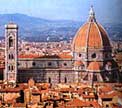
|


|
|
|
Mr. Sedivy's
More Features:
|
Highlands Ranch High School - Mr. Sedivy World
History
Writings From the Time of Augustus Caesar - 2
From Dio Cassius, Roman History In this way the power of both the people and senate passed entirely into the hands of Augustus, and from this time there was, strictly speaking, a monarchy; for monarchy would be the truest name for it, even if two or three men later shared power. Of course, Romans hated the title "monarch" (Rex) so much that they called their emperors neither dictators nor kings nor anything of this sort. Yet, since the final authority for the government was in their hands, they surely were kings. The entire direction and administration of the country moves in accordance with their wishes. And yet, in order to preserve the appearance of having this authority ... the emperors have taken to themselves all the offices and titles which during the Republic possessed great power with the consent of the people - with the exception of the dictatorship. For example, the emperors are often called "consul." The title "Imperator" is held by them for life, not only by those who have won victories in battle but also by all the rest, to indicate their absolute power (but they are never called "king" or "dictator"). ... By virtue of their titles, they gain the right to draft troops, collect taxes, declare war, make peace, and rule foreigners and citizens alike everywhere and always - even to the extent that they can put to death both military officers and senators within the city limits of Rome! And this is not all they can do. By virtue of holding the office of censor they investigate our lives and morals as well as take the census. By virtue of being priests they control all matters both worldly and sacred. By holding the power of tribune they have the power to nullify or veto measures taken by any other officials. And as "tribunes" they are inviolable; if anyone even appears to wrong them in the slightest degree, they may ruin the guilty party without a trial. It is clear then that the emperors, while clothing themselves with Republican titles, actually possess all the powers of kings without calling themselves kings. They are called "Caesar" and "Augustus" and this shows that they are in the family line. The name "Father" perhaps gives them a certain authority over us all - the authority which fathers once had over their children. Yet it did not signify this at first, but was intended as a sign of honor and called on them to love their subjects as they would their children, and called on subjects to revere the emperor as they would their fathers ... The senate continued to meet as before, and transacted business with ambassadors and messengers from foreign peoples and kings; but nothing was actually done by the senate that did not please Caesar. Caesar sometimes decided, and often influenced, who would hold office as senator. Such were the arrangements made at that time. In reality, Caesar himself was destined to have absolute power in all matters for life, because he was not only in control of money matters but also in control of the army. In any case, when his ten-year period of leadership came to an end, there was voted for him another five years, then five more, after that ten, and again another ten, and then ten for the fifth time, so that by the succession of ten-year periods he continued to be sole ruler for life. And it is for this reason that the monarchs who followed him, though no longer appointed for a specified period but for their whole life once for all, nevertheless always held a celebration every ten years, as if they were renewing their sovereignty once more. This is done even at the present day. Eventually Caesar received other honors and privileges. For example, The right to fasten laurels to the front of the imperial residence and to hang the civic crown above the doors was voted for him to symbolize the fact that he was always victorious over enemies and and was the savior of the citizens. The imperial palace is called Palatium, not because it was ever decreed that this should be its name but because Caesar dwelt on (the hill called) the Palatine and had his military headquarters there. ... Hence, even if the emperor resides somewhere else, his dwelling retains the name of Palatium. And when he had actually completed the reorganization of Rome, the name Augustus was at length bestowed upon him by the senate and by the people. ... He took the title of Augustus, signifying that he was more than human; for all most precious and sacred objects are termed augusta. ... From Tacitus, Annals After the death of Brutus and Cassius, there was no longer any army loyal to the Republic. Then Octvian, laying aside the title of triumvir and parading as a consul, and saying he was satisfied with having the power of a tribune for the protection of the plebs, Augustus enticed the soldiers with gifts, the people with grain, and all men with the prospect of peace. He gradually grew in power, concentrating in his own hands the functions of the senate, the magistrates, and the laws. No one opposed him, for the most courageous had fallen in battle or in the proscription. As for the remaining nobles, the more willing they were to become slaves, the higher they were raised in wealth and offices, so that, enriched by the significant changes (brought about by Octavian), they preferred the safety of the present to the perils of the past. At home all was peaceful; the officials bore the same titles as before. The younger generation was born after the victory of Actium, and even many of the older generation had been born during the civil wars. How few were left who had seen the Republic! Thus the constitution had been transformed, and there was nothing at all left of the good old way of life. Stripped of equality, all looked to the directives of a princeps with no apprehension for the present, while Augustus in the vigorous years of his life maintained his power, that of his family, and peace. Writings From the Time of Augustus By: Augustus, Senate, Horace, Suetonius Augustus - Res Gestae Divi Augusti Class Assignment: The Rise of the Roman Empire I - The Etruscans / Romulus and Remus V - Roman Life and the Spread of Christianity VI - The Pax Romana and Roman Culture VII - Decline of the Roman Empire Malaria May Have Hastened the Fall of Rome Class Activity Virtual Tour of Ancient Rome - Past & Present Historical Periods of | Prehistory
| Mesopotamia & Phoenicians | |
Highlands Ranch High School ![]() 9375 South Cresthill Lane
9375 South Cresthill Lane ![]() Highlands Ranch, Colorado 80126
Highlands Ranch, Colorado 80126 ![]() 303-471-7000
303-471-7000
Mr. Sedivy's History Classes
| Colorado History | American
Government | Modern European History | Advanced
Placement European History | Rise of England
| World History |
| Home | Back to the Top | Site
Contents |

